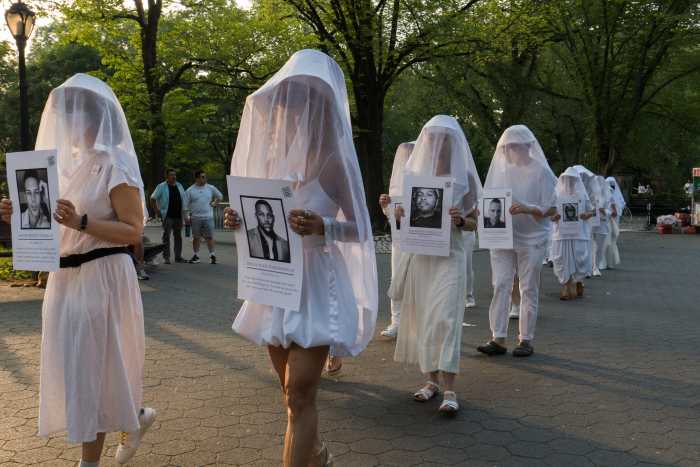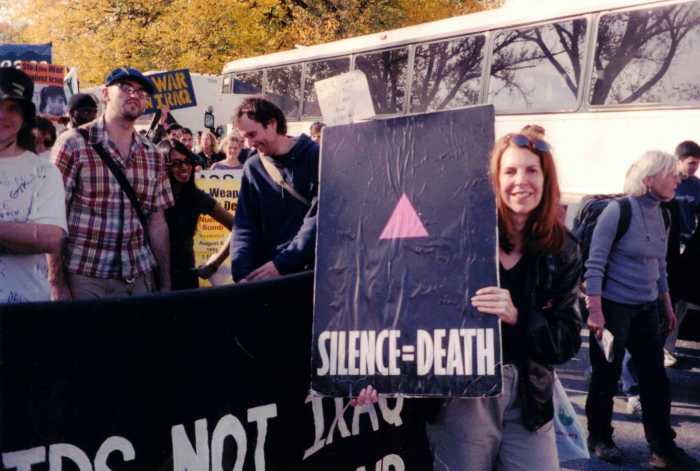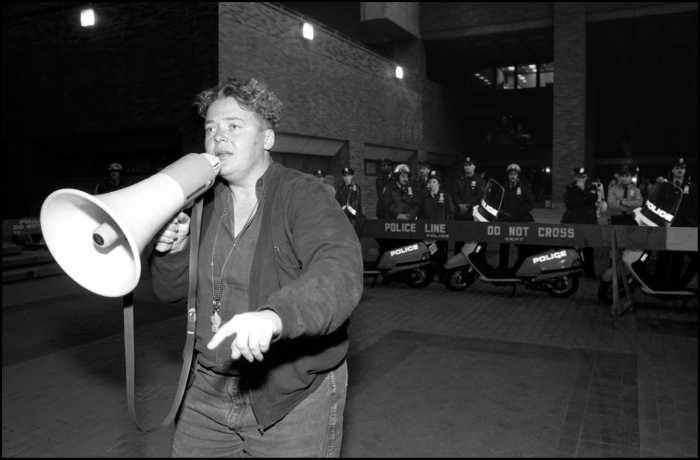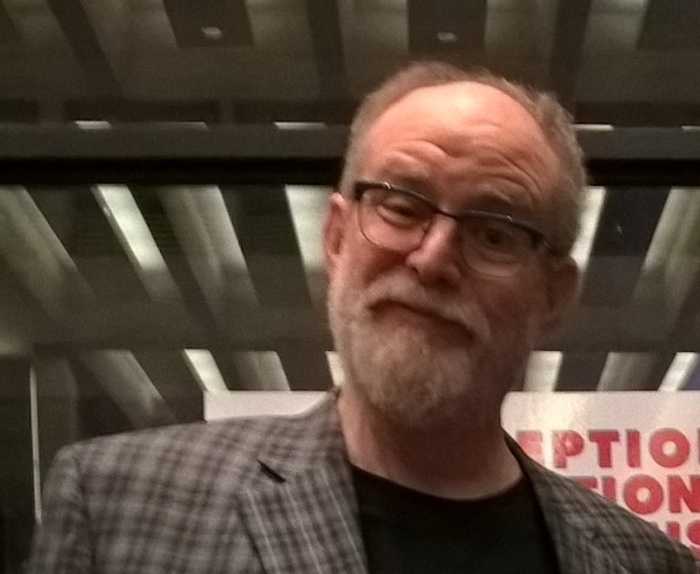Opera critic James Jorden, whose incisive must-read, at times scathing or snarky, and always crackling commentary graced the pages of publications from Gay City News to the New York Post, was found dead October 2 at the age of 69 in his Sunnyside, Queens apartment. The city’s Chief Medical Examiner’s office is working to establish the cause of death.
Though Jorden’s opera criticism could also be found in the New York Times, the New York Observer, Opera, Opera Now, and Musical America and on National Public Radio, he will be remembered best for his stewardship of Parterre Box, a “queer opera ‘zine” he created in 1993 that landed with an irreverent downtown sensibility unafraid to challenge the opera world’s sacred cows.
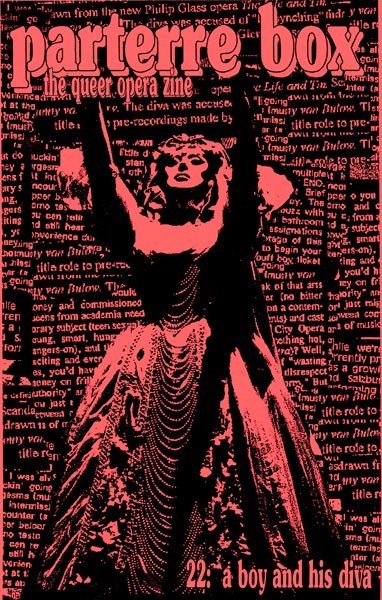
Like other East Village-inspired ‘zines of 1980s and ‘90s, Parterre Box was introduced as a simple affair — the first issue was four pages Xeroxed on pink paper. A 2018 New York Times profile of the publication described it as the “best blog in opera” (Parterre migrated from print to online in 2001) and recounted how, early on, Jorden would leave copies in the Tower Records near Lincoln Center and in the men’s room stalls at the Metropolitan Opera. Just prior to a performance of “Salome,” he told the Times, Met security guards caught him and threw him out.
Jorden’s underground approach to opera criticism found its audience, despite the publication’s distribution challenges. In the wake of his death, Parterre Box readers took to the site — backgrounded in the same pink as the original print version — to pay tribute to Jorden.
Recalling the ‘zine’s earliest days, Stephen Field wrote, “A little hot pink pamphlet with Hollywood scandal sheet type graphics on the cover… I watched in awe when you were ‘escorted’ out of the Met for leaving pamphlets (the first incarnation of the ‘zine) with the subscription and season brochures (and I think also in the men’s room?)… You reshaped my understanding of opera. Thank you for all the intelligent gayness and for creating the incredible world of Parterre. You had a huge impact on all of us.”
David Shengold, who shared the opera beat with Jorden for many of the 12 years Jorden wrote for Gay City News, described the evolution of Parterre Box over its now 30-year life, from “an irreverent, shouting-queer-to-the-rooftops ‘zine” to an online offering that became “an increasingly erudite, entertaining, and vital international web community.”
Prior to launching Parterre Box, Shengold explained, Jorden worked as a stage director and was also “well versed in the history of costumes and the filmic legacy of divas from Bette Davis to Elizabeth Taylor.” His life-long interests allowed him to bring “detail, humor, and a militantly unapologetic gay sensibility to his work” and explore “the particularly queer and genre-breaking aspects” of opera.
Referring to the comments posted online in response to Jorden’s death, Shengold said, “I was incredibly moved to see on Parterre impassioned testimony to the incredible community he’s fostered worldwide of people exploring not only opera but their identity and representation through participation on the site. It’s a unique and transformative contribution to the art form he adored.”
Despite Jorden’s dust-up with Met security, in short order Parterre Box critics gained house credentials, and the site nows lists almost three dozen contributors. Using the drag nom de plume La Cieca — borrowed from the blind mother of the title character of the 1876 Ponchielli opera “La Gioconda” — Jorden posted gossipy blind items gathered from opera insider fans and for four years through 2009 hosted a podcast titled “Unnatural Acts of Opera.” In his own guise, Jorden later served up “Parterre Saturday Afternoon” webcasts interviewing opera stars appearing that weekend.
In its obituary of Jorden, the Times quoted Peter Gelb, the Met’s general manager, saying, “I know that his blog was often very critical of the Met and me. But ultimately, he was on the side of opera, and I always respected him for that.”
Jorden began his association with Gay City News’ predecessor publication LGNY in 1997, writing regularly for both titles until 2009 when he became opera critic for the New York Post, a position that precluded him from writing elsewhere.
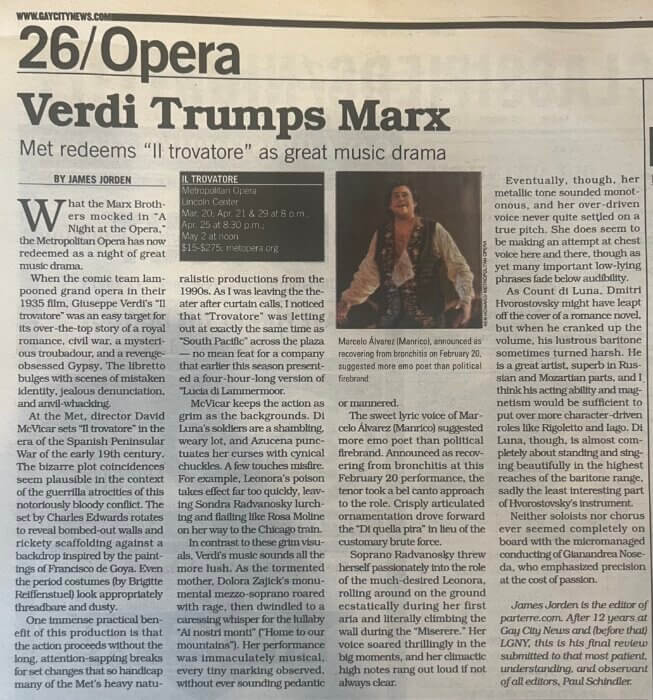
Recalling Jorden’s invitation to Shengold that he join LGNY’s opera team, Shengold said, “At some point in the late ‘90s he felt overwhelmed, and generously asked me — an intermission compagnon de guerre rather than a friend — to take up the slack, allowing me to concentrate on events I feared otherwise would get no coverage: a leading Met artist making a debut in a revival’s third cast or an outer borough storefront troupe of artists of color offering a novel reading of some red sauce classic. This opened up a new career for me, just as his constant encouragement of young reviewers of diverse backgrounds on Parterre introduced many valuable perspectives to the opera world’s once fairly fusty discourse. In some ways he and I couldn’t have been more different, except for caring so much about opera.”
Jorden embraced the intellectual chaos that his commitment to diversity at Parterre could spark.
“Even if flame wars erupted over varying opinions, he valued both performing artists and writers sticking up for their individual tastes and flukes,” Shengold explained. “In person, encountered at intermissions, he was always cordial and anxious to include newbies in the wild joint experience opera can offer.”
Jorden’s arrival at LGNY in early 1997 resulted from a classical music recording engineer introducing me to him. I enjoy opera and have loved some productions I’ve seen, but as his editor I never pretended to be knowledgeable about it in any significant way. Still, editing him was an easy joy, given his unsurpassed knowledge and his deft economy of words in conveying an unambiguous critical point of view. Even in his deepest dives into the weeds, his writing could engage the most casual of opera fans.
“His command of le mot juste — or sometimes deliberately injuste — astounded me,” Shengold said.
Writing in Gay City News in August 2005, Jorden noted two new musical theater performances that debuted at Lincoln Center: “Both ‘I La Galigo’ and ‘Shadowtime’ ran for over two hours without an intermission. Sitting in the dark that long, I wondered why producers of modern opera do not include an intermission. A fellow reviewer ventured, ‘Because they wouldn’t dare,’ when I mentioned my concern.”
In 2004, Jorden skewered a long-admired diva, writing, “What was anticipated –– and hoped –– to be the Second Coming didn’t quite happen last week. Aprile Millo’s first assumption of the title role in ‘La Gioconda’ at Opera Orchestra of New York (April 20) offered great promise, but not, as yet, revelation.”
When praising artists, Jorden would at times take on the opera establishment that held back wider audience embrace of their talents. At the end of strong reviews for Violeta Urmana’s turn in the title role of Strauss’s ‘Ariadne auf Naxos’ at the Met and a New York City Opera production of Paul Dukas’ ‘Ariane et Barbe-bleu,’ Jorden, in October 2005, wrote, “Sadly, both these operas played to poor houses; whole rows of empty seats gaped in the upper levels of the Met, and the NYCO’s audience looked heavily papered. Surely the whopping price of tickets — a $220 top at the Met — has something to do with driving the public away.”
James Jorden was born on August 6, 1954, in Louisiana and graduated from Louisiana State University. According to the Times, it was in Dallas during his college years that he first saw the Met perform, with Renata Scotto headlining Puccini’s “Il Trittico.” Jorden is survived by two brothers, John and Justin.
Parterre Box will announce a memorial service for Jorden in the near future.


